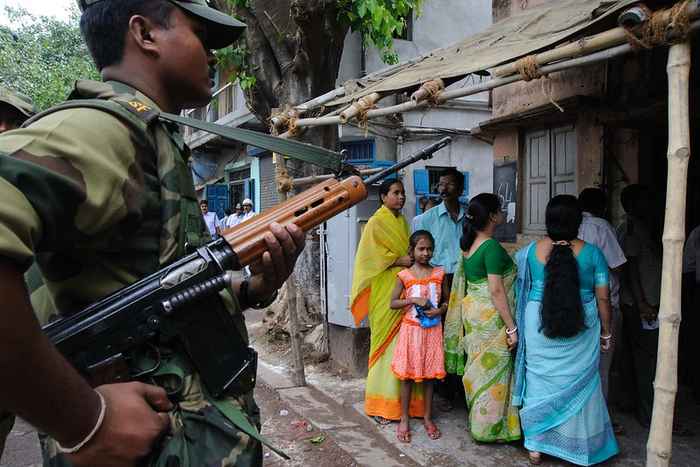What explains violence in elections?
4 June 2020

Nearly every country in the world today holds elections. Elections should in principle peacefully transfer power. But in many countries, they still often come with substantial violence. Daxecker wants to explain the nature, organisation, and consequences of election violence.
‘My research wants to understand why things go wrong in elections. Elections have the potential to change power, which makes them so important. But precisely because of their significance, intimidation and violence may go along with elections. For example, politicians can use violence to intimidate voters who they think will support their opponents. From a global perspective, we already know a fair amount about election violence, but with this project, I want to dive into the local context of violence,’ explains Daxecker.
Control over resources and violence
‘In developing countries, those in power often control crucial resources, and ethnic or religious identities and voting behaviour often overlap. This means that elections have an impact at a more personal level than in industrialized democracies. Voting can mean gaining access to these resources or not. These linkages between power, resources and identities can contribute to violence during elections’, explains Daxecker. ‘And violence can be effective not only at keeping people from voting, but could also solidify these ethnic or religious identities.’
‘I am also interested how violent actions damage democracy and other negative consequences. People who associate elections with violence may withdraw from elections or become more extreme in their views. Neither of these is desirable for democracy,’ tells Daxecker.
Understanding election violence and its consequences
With her study Daxecker aims to understand:
- How violence is organised and how partisan and other social identities matter.
- Which actors get involved in violence and for which reasons. ‘For example, we still poorly understand why youth and gangs become engaged in violence. Is it simply for short-term economic benefit?’
- The differences within countries and how we can explain these. ‘For example, in Nigeria we see that the Niger Delta is consistently confronted with election violence, while other regions in Nigeria are not. How can we explain this?’
- The effect on people. ‘From research we know that violence can be very effective in demobilising people to vote. But how does violence affect people’s attitudes more generally, in the short- and long-term?’
- The conditions under which things go well. ‘By identifying the conditions leading to violence, we hope to identify ways for making elections safer .’
Research in Nigeria and India
Daxecker will conduct her research in India and Nigeria. These are two of the world’s largest emerging democracies, together containing twenty percent of the global population. Both countries have a lot of variations regarding who gets involved in violent actions during elections, and regions that are violent or not. Daxecker will not compare the two countries with each other, but aims to understand the dynamics within the countries.
A multi-method approach
Daxecker will use a multi-method approach to examine within-country variation in parties and partisanship, parties’ social support and election violence. She will combine quantitative data, survey experiments and surveys, and fieldwork interviews. The project is funded by and ERC (European Research Council) Starting Grant.
The results of her research will be of interest to academics and policymakers who will benefit from understanding the dynamics of election violence and identifying the regions at risk of violence.